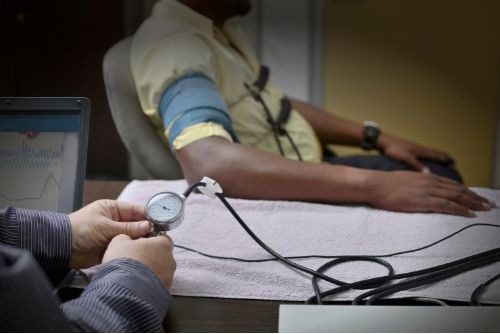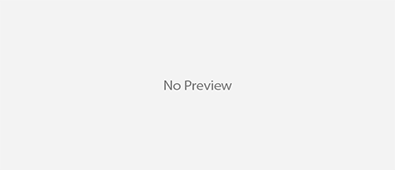The use of polygraph tests, commonly known as lie detector tests, in the police hiring process has been a controversial topic for many years. Some argue that polygraph tests can help ensure that only the most honest and trustworthy candidates are selected for police work, while others believe that the tests are unreliable and can lead to discrimination against certain groups of people.
In this article, we will provide a complete guide to polygraph tests for the police hiring process. We will cover what the tests are, how they work, what questions are asked, and their accuracy. We will also discuss the potential advantages and disadvantages of using polygraph tests in police hiring and provide some tips for candidates who may be asked to take the test.
What is the rationale behind a polygraph test?
A polygraph test is a device used to measure various physiological responses such as blood pressure, heart rate, respiration, and skin conductivity while a person is being questioned. The idea behind the test is that when someone is lying, their body will involuntarily produce a physical response, such as an increased heart rate or sweating, that can be detected by the machine.
How Does a Polygraph Test Work?
During a polygraph test, the candidate is connected to the machine through a series of sensors attached to their body. The examiner then asks a series of questions, some of which are intended to genuinely investigate the issue, i.e., relevant questions. The examiner will also ask control and irrelevant questions, which are designed to establish a baseline for the candidate’s physiological responses when they are lying and when they are being truthful.
The examiner then analyzes the results and compares the physical responses to determine if the candidate is being truthful. However, it is important to note that polygraph tests are not 100% accurate, and false positives or false negatives can occur.
What Questions Are Asked in a Police Polygraph Test?
The questions asked during a police polygraph test can vary depending on the examiner and the agency conducting the test. However, some common relevant and control questions might include:
Relevant:
- Have you ever used illegal drugs?
- Have you ever committed a serious crime?
- Have you ever disclosed national secrets?
Control:
- Have you ever lied to a supervisor?
- Have you ever stolen anything?
- Have you ever lied on your job application or during the hiring process?
It is important to note that not all police departments use polygraph tests during the hiring process, and some only use them for certain positions or when there is a specific reason to suspect that a candidate may not be truthful.
Accuracy of polygraph tests
The accuracy of polygraph tests is highly debated. Some studies have suggested that polygraph tests are accurate up to 90% of the time, while others have shown that they are no more accurate than chance.
One of the main criticisms of polygraph tests is that they can be influenced by factors such as anxiety, nervousness, and cultural differences. In addition, some people may be able to control their physiological responses to questions, making it difficult for the examiner to determine if they are lying.
Advantages and disadvantages of using polygraph tests in the police hiring process
There are potential advantages and disadvantages to using polygraph tests in the police hiring process. Some potential advantages include:
- ensuring that only the most honest and trustworthy candidates are selected for police work.
- helping to prevent corruption within police departments.
- serving as a deterrent to candidates who may be considering lying or concealing information during the hiring process.
However, there are also potential disadvantages to using polygraph tests, including:
- The accuracy of polygraph tests is highly disputed.
- Polygraph tests can be influenced by factors such as anxiety and nervousness, which may unfairly disqualify otherwise qualified candidates.
- Polygraph tests can be expensive and time-consuming, which may create unnecessary delays in the hiring process.
- Polygraph tests may disproportionately impact certain groups.
Tips for Candidates Taking a Police Polygraph Test
If you are a candidate for a police position and are asked to take a polygraph test, there are several things you can do to prepare:
- Be honest: The most important thing you can do during a polygraph test is to be honest. If you lie or try to conceal information, there is a good chance that it will be detected, which can result in disqualification from the hiring process.
- Get enough rest: Polygraph tests can be stressful, so it is important to get enough rest the night before the test to help reduce anxiety and nervousness.
- Ask questions: If you are unsure about any aspect of the test, don’t hesitate to ask the examiner for clarification. Understanding what to expect during the test can help you feel more prepared and relaxed.
- Practice relaxation techniques prior to the : If you tend to get anxious or nervous during stressful situations, consider practicing relaxation techniques such as deep breathing or meditation in the days leading up to the test.
Conclusion
Polygraph tests have been used in the police hiring process for many years, but their accuracy and effectiveness continue to be a topic of debate. While there are potential advantages to using polygraph tests, such as ensuring that only the most honest and trustworthy candidates are selected for police work, there are also potential disadvantages, such as the tests being influenced by factors such as anxiety and nervousness.
If you are a candidate for a police position and are asked to take a polygraph test, it is important to be honest, get enough rest, ask questions, and practice relaxation techniques to help reduce anxiety and nervousness. Ultimately, it is up to individual police departments to determine whether or not to use polygraph tests during the hiring process and to weigh the potential benefits and drawbacks of doing so.



